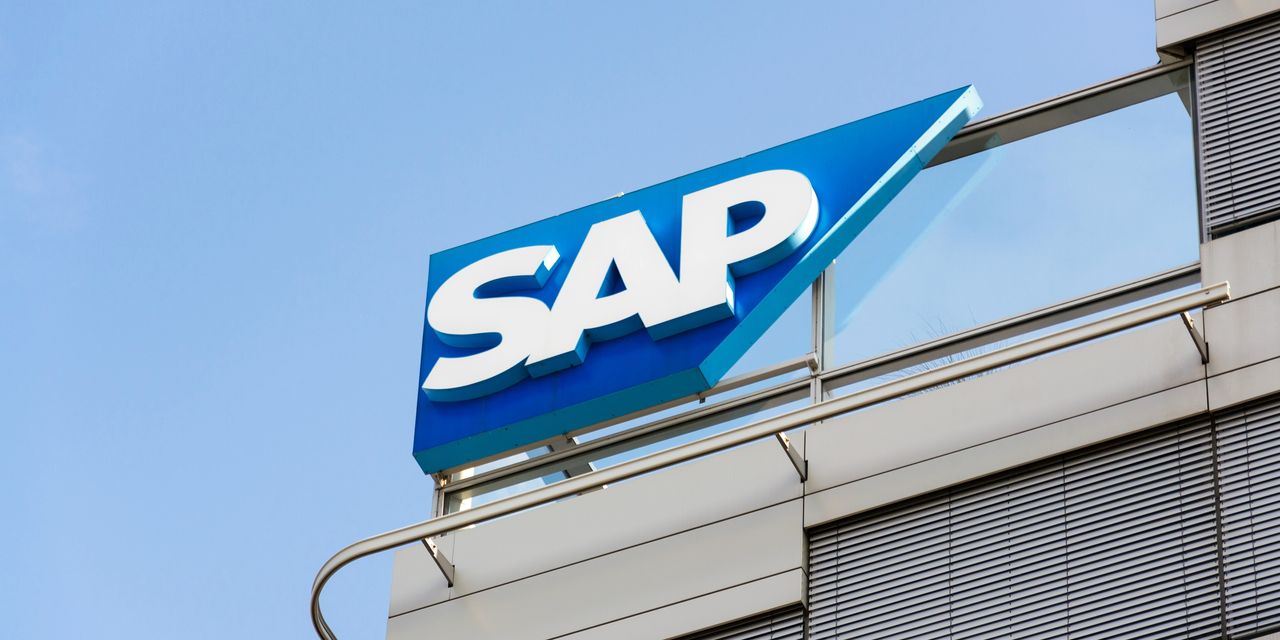SAP shares slumped Thursday after the German enterprise software giant reported financial results for the June quarter that were shy of Wall Street estimates.
“This has been another strong quarter,” CEO Christian Klein said. “We see significant opportunities ahead, in particular through the transformative power of AI.”
Despite Klein’s characterization, the results didn’t meet consensus estimates. For the second quarter ended in June,
SAP
(ticker: SAP) posted revenue of €7.5 billion, or $8.35 billion, up 5%, or 8% adjusted for currency, falling short of the Wall Street consensus forecast as tracked by FactSet at €7.6 billion. Profit on an adjusted basis was €1.07 a share, below consensus of €1.17 a share. Under standard accounting, the company earned €0.62 a share.
On an adjusted basis, operating profit was €2.1 billion, up 23%, or 28% adjusted for currency. The company said cloud backlog was €11.5 billion, up 21%, or 25% adjusted for currency.
SAP, which sells financial, human resources, and logistics software to large enterprises, continues to push customers to switch to cloud versions of its software: Cloud revenue in the quarter was €3.3 billion, up 19% or 22% in constant currency.
SAP slightly trimmed its cloud revenue forecast for the full year. It now sees cloud revenue ranging from €14 billion to €14.2 billion, down from a previous range of €14 billion to €14.4 billion. But SAP now sees adjusted operating profit at constant currency at €8.65 billion to €8.95 billion, slightly increasing the range from €8.6 billion to €8.9 billion previously.
In an interview with Barron’s, SAP CFO Dominik Asam said results in the quarter were affected by some headwinds in the company’s more transactional businesses, like Concur, a tool for employee expense management, and Fieldglass, which is used to manage contract workers. He also noted that caution on behalf of some customers caused some projects to slip from the second quarter to the third quarter.
On a call with reporters, CEO Klein stressed the promise of the company’s push into generative AI software. He said AI should drive the company’s total addressable market to $1 trillion by 2028, up from a previous forecast of $500 billion.
Asam told Barron’s that while the company is considering various models for how to go to market with new AI tools, he noted that “AI is not something you get for free, the value can be very significant and we will price accordingly.”
Earlier this week, SAP announced that it had made investments in three companies working on large language models, including Anthropic, Cohere, and Aleph Alpha. The company said at the time that the investments “reinforce SAP’s open ecosystem approach to AI, leveraging the best technology to embed AI across the SAP portfolio.”
SAP will join a growing group of other corporate investors taking stakes in generative AI businesses.
Alphabet
(GOOGL),
Salesforce
(CRM), and
Zoom Video
(ZM) have all invested in Anthropic; Cohere’s investors include SAP rivals Salesforce and
Oracle
(ORCL), as well as the chip maker
Nvidia
(NVDA); meanwhile, Aleph Alpha recently reached an agreement with
Hewlett Packard Enterprise
(HPE) to develop large language models.
U.S.-listed SAP shares fell 6.3% to $133.93 on Thursday.
Write to Eric J. Savitz at [email protected]
Read the full article here





